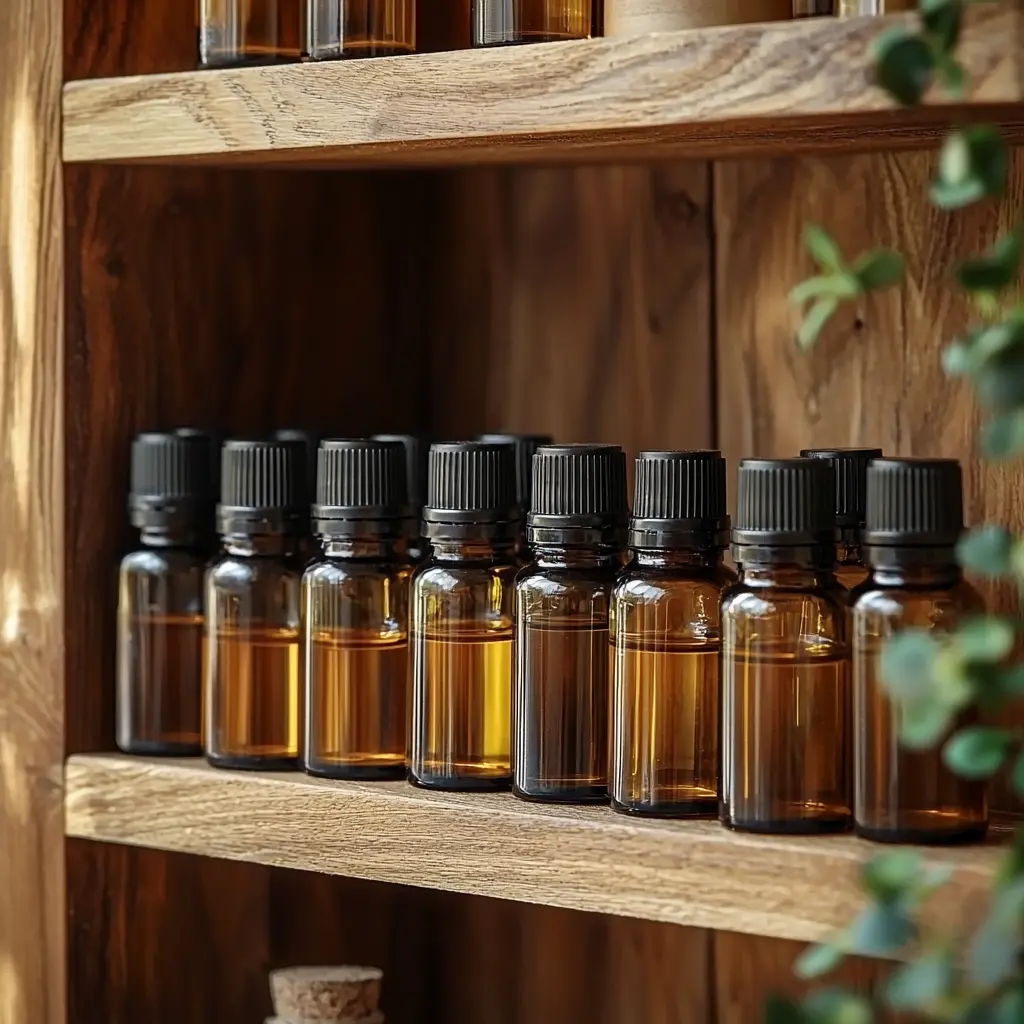Harmful additives in body care products
Why ingredient awareness matters?
Many people overlook the importance of reading ingredient labels on their body care products. Eye-catching packaging and enticing scents often steal the spotlight, while the actual composition of products remains a mystery. Yet, harmful additives can compromise our skin’s health and overall well-being. Gaining knowledge about these ingredients can help us make better purchasing decisions, leading to healthier, happier skin.

Sulfates
The Foam Factor
Sulfates are known for their ability to create a rich, satisfying lather. They are often labeled as Sodium Lauryl Sulfate (SLS), Sodium Laureth Sulfate (SLES), or Ammonium Lauryl Sulfate. Many people assume more foam equates to better cleaning power. However, sulfates can strip the skin of its natural oils and damage its protective barrier. Once that barrier is compromised, harmful substances can penetrate the skin more easily.
People with sensitive skin may find that products containing sulfates cause dryness, redness, or even itching. Frequent exposure might also lead to scalp irritation when using sulfate-based shampoos. By choosing sulfate-free alternatives, you can protect your skin’s moisture balance and reduce the risk of irritation.
Parabens
An Overlooked Threat
Parabens such as methylparaben, propylparaben, butylparaben, ethylparaben, and isobutylparaben act as preservatives in lotions, face creams, and many other cosmetics. They keep bacteria and mold at bay, extending a product’s shelf life. Despite this convenience, some studies have suggested that parabens can interfere with the body’s hormonal balance.
Parabens may trigger allergic reactions in those with sensitive skin. Signs of irritation include redness, swelling, or itchiness. Because of these concerns, many brands now highlight their paraben-free status on packaging. Opting for paraben-free products can be a proactive step toward protecting both your skin and endocrine health.
Mineral Oil
The Invisible Barrier
Mineral oil, also listed as paraffin oil, petrolatum, or liquidum paraffinium, is derived from petroleum. It forms a film over the skin, trapping dirt and preventing pores from breathing. This can aggravate conditions like acne and may lead to enlarged pores over time. By blocking the normal exchange of air and nutrients, mineral oil can slow down the skin’s natural repair processes, potentially speeding up signs of aging such as fine lines or wrinkles.
Beyond its pore-clogging effects, mineral oil may carry contaminants known as Polycyclic Aromatic Hydrocarbons (PAHs). These have been linked to carcinogenic properties, increasing the level of concern. Some baby care products rely heavily on mineral oil to soften delicate skin, but many parents now search for alternatives like natural plant oils, shea butter, or coconut oil to avoid potential risks.
Triclosan
The False Protector
Triclosan gained popularity for its antibacterial properties, making it a common ingredient in certain toothpastes, deodorants, and hand washes. Though it does kill bacteria, it also affects beneficial bacteria on the skin and in the mouth. This disruption to our body’s natural microbiome may lead to imbalances that cause new problems, rather than solving existing ones.
Some studies have raised concerns about triclosan’s link to liver damage, developmental issues, and even certain cancers. Authorities in various countries are now re-evaluating its use. As more consumers learn about these potential risks, they look for products that rely on milder or more natural antibacterial agents.
Synthetic Fragrances
The Hidden Irritants
Most of us choose body care products based on smell because fragrance can turn a daily shower or bedtime routine into a soothing ritual. The term “fragrance” or “parfum” on a label, however, typically represents a proprietary blend of chemicals. These synthetic aromas can provoke allergic reactions, headaches, or respiratory irritation in sensitive individuals.
When applied to the skin, synthetic fragrances may lead to redness, dryness, or persistent itching. Prolonged exposure to strong chemicals can weaken the skin’s ability to defend itself against external stressors. As an alternative, selecting fragrance-free items or products scented with essential oils can reduce the risk of irritation and still satisfy the desire for a pleasant smell.

Keeping Skin Healthier
Simple Steps for Change
Avoiding harmful additives begins with reading labels. It might be tempting to skip the ingredients list when in a hurry, but pausing to examine your chosen product can protect your health in the long run. Many companies now promote sulfate-free, paraben-free, and fragrance-free formulas, making it easier to spot safer options.
Natural preservatives, like certain plant extracts, replace parabens in some products. Brands that use coconut- or sugar-based foaming agents instead of sulfates keep skin feeling less stripped and more balanced. For moisturizer, plant-based oils like jojoba, argan, or almond oil can hydrate without clogging pores. When selecting scented products, consider essential oil-based options. They smell wonderful and often come with unique aromatherapy benefits.

Tips for choosing the right essential oils
Your product is only as good as the oils you put in it. To get the most out of aromatherapy:
Opt for high-quality, pure oils: Look for labels such as “100% pure essential oil.”
Check for safety: Some oils are not suitable for children, pregnant women, or pets. Always double-check safety guidelines.
Start small: Buy small bottles of oils you’re interested in. Once you find favorites, you can invest in larger sizes.
Experiment with blends: Mix different oils to create unique blends (e.g., lavender and bergamot for relaxation, peppermint and lemon for a fresh, invigorating scent) but try to not make it overcomplicated.
Contact info
Author:
Roseware Kft. - Réka Rózsáné Illés
Affiliate programs
I am open to be the part of affiliate programs with essential oil manufacturers and sellers. Contact me!
Copyright info
Photos and texts on this website are subjects of copyright - the owner of the copyright is Roseware Kft. - Réka Rózsáné Illés. Do not use any of these without permission.
